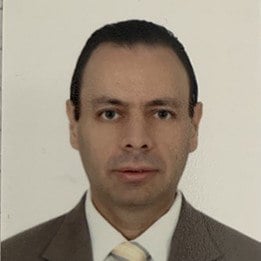

Legal manager | Agroazucar Ecuador



J. Alfredo González Garavito
Legal manager | Agroazucar Ecuador
Team size: Four
What are the most significant cases or transactions that your legal team has recently been involved in?
Agroazucar’s primary activity is the cultivation and processing of sugar cane, for the production of sugar as well as other derived products, as such our main asset is the land in which the sugar cane is grown. Unfortunately, some of this land has been at risk due to acts carried out by third parties who have tried to illegally appropriate the land. The legal team has managed to develop an effective strategy to protect this land and prevent third parties from effecting Agroazcuar’s property. It is important to highlight that for the aforementioned legal strategy, we worked with a multifunctional team, involving the field, security, and technology areas, led by our legal area.
Furthermore, we have improved our service to internal clients by restructuring and dividing our legal department into four key areas – contracts and corporate, land, litigation, and institutional relations. As a result, our lawyers have placed themselves as leaders in each respective area, according to their experience and expertise, which has led to improved efficiency in our operations.
To further improve internal customer service, we are in the initial stages of developing a technological tool that will allow our internal clients to submit legal requests, prioritise them, and receive more timely and effective responses. This tool will also provide insights into the process and outcomes of the assistance provided.
How important is choosing to work with external lawyers who align with your company’s values? Are you likely to reconsider what firms you work with based on this?
It is definitely very important to have external lawyers who are aligned with the company’s values, because when they advise and act in legal proceedings in defence of the company, they are representing us and, therefore, their actions can have a positive or negative impact on the company’s corporate image. Furthermore, if they are fully aligned with the company’s value then they will better understand our objectives, therefore advising us on the best way to achieve company objectives.
Looking forward, what technological advancements do you feel will impact the role of in-house legal teams in the future the most? Which have you found most useful in your legal team?
I believe that the best technological advancement, and the one that has directly influenced our work as an in-house legal team, is that of communications. This has contributed to making our work more agile and flexible. The simple fact of being able to hold a virtual meeting and even hearings in legal proceedings, through virtual platforms, has significantly improved response time optimisation. For this reason, I believe that both public institutions and private companies should be continually implementing these technological tools into their processes and activities.
As we live in a fast-paced world today, what skills will a corporate legal team need to succeed in the modern in-house industry?
It is clear that due to the current dynamism of the business sector and the importance of information management, today’s lawyer must also be trained in data analysis and business intelligence. It is no longer sufficient for in-house counsel to only have a strong legal knowledge, they must also be able to implement legal strategies, based on business intelligence, so that they are contributing to the achievement of the organisation’s objectives.
In-house counsel can no longer be an isolated company department as was previously the case. On the contrary, in-house counsel must be closely integrated into the organisation’s operations, capable of analysing and understanding the data pertaining to other business sectors and engage as part of the management team developing the organisational strategy.